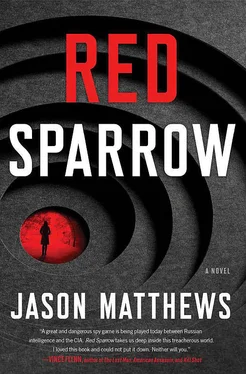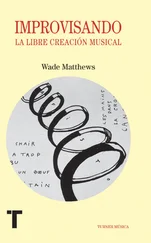Official US sources downplayed the loss of the manual—not much made it into the public record, but a leak from a “high-placed government source” described the incident as a “grave loss of national security information.” Congressional calls for an accountability investigation followed. The dithering, and recriminations, and accusations were all a part of variegated deception, assembled and propagated via scores of unwitting sources and assorted blabbermouths, orchestrated by CI Chief Simon Benford, with the sole goal to reassure the Russians that the manual they had acquired was genuine. If an ancillary benefit was to protect the agent DIVA—if she was still alive—all the better.
SVR Directorates R (analysis) and X (science) submitted reports. Preliminary analysis of the US National Communications Grid document passed by Bullard concluded with the assessment that the document was authentic and unique. Directorate T officers, FAPSI communications experts, and scientists from the Saint Petersburg University of Information Technologies began studying the manual in consultation with the Ministry of Defense to identify exploitable vulnerabilities in the vast US network. Funding had been requested from the defense budget for developing software, cyber applications, and other tools for potential use against the assessed weakest spots in the system.
Because they wanted to believe, a consensus was reached among the Kremlin knyaz’ki, the princelings. The material was authentic, a significant windfall, even if the Americans knew of its loss. Obtaining Bullard’s information from under the nose of American intelligence was a tactical triumph, a demonstration of Russian mastery in tradecraft. That the volunteer Bullard had been arrested was his misfortune, obviously a result of his stupidity, sloppiness, and greed. The Kremlin couldn’t care less about his fate. He was the Americans’ concern now, for three consecutive life sentences.
A commendation from the Duma recognized Rezident Volontov and the Helsinki rezidentura. In a late afternoon ceremony in the gilded Andreyevsky Hall of the Grand Kremlin Palace, double eagles over the doors where red stars had once hung, SVR First Deputy Director Egorov was awarded a second star as lieutenant general. President Putin himself handed Egorov the oblong felt box with the two-star clusters, bussed him on three cheeks, and gave him a trademark crocodile smile that from the president was an exhilarating gesture of approval. The promotion ceremony coincided with the weekend and delayed Dominika’s release by two days.
On Monday, after breakfast, Vanya Egorov finally made the calls. To KR, to the Internal Investigations Directorate, ultimately to the FSIN, the creeps in the Service for the Execution of Punishments, the demon offspring of the gulags. He identified himself using his new star, Lieutenant General Egorov, to tell them all to finish it up. It was beginning to look bad, she was his brother’s daughter, for God’s sake. No, he did not want them to go to Level Two. No, he did not authorize administering drugs, or a course of sensory deprivation, or more severe electric shock. What the hell is wrong with you people? These measures are for bastard traitors, like the mole still out there, he thought. If she hasn’t confessed, there is nothing to confess, though the devil knew what had happened in Helsinki, with that sliznjak, that garden slug Volontov running things. Clean her up and send her back to me, her mother is worried, I want her back on the job, he said with fatherly concern.
Colonel Digtyar himself brought the cardboard box with her clothes to the cell, stood there while she undressed and returned the smock—State property—and dressed in front of him, her shins and thighs mottled blue-black, her fingernails purple, her ribs showing. They had accomplished all that in such a short time. They walked her upstairs to the grilled door and she stepped out onto the snowy street, with the traffic noise and the smell of exhaust from the buses, and she walked gingerly on the ice for a little way, just to feel the ground beneath her feet, her breath in clouds rising above her head. Her ballet limp was more pronounced now, and her foot throbbed, but she concentrated on swinging her arms and walking away from the walls with her back straight. The marks on her wrists were visible from under the cuffs of her overcoat.
=====
Dominika dreamed about prison, in her bed, or sitting in a chair in the living room while her mother washed bedsheets sour from the poison that was leaving her body. She backed into the hall closet and closed the door on herself and stood wedged in the dark to relive the cabinets—smell and sound, click- clack, click- clack —and for the pleasure of knowing she could come out into the light whenever she liked. She wrapped her wrists together with panty hose and strained the knot tight with her teeth, to feel her pulses. After all the edgy urges left her, she cried silently, tears wetting her cheeks. Her mother played the violin every day now, a half hour at a time, while Dominika sat on the floor and stretched, and lifted her legs until her stomach screamed, and pushed up from the floor until her arms shook. Her mother washed her, sitting in the tub the first night, but now Dominika stood in the bath alone, seeing the marks disappear, watching herself heal. She nodded to herself in the mirror. She was getting better, and with the feeling of redemption the coda of a vermilion fugue, a red fury, repetitively welled up around her. It was a deep rage, one easily enough controlled, one that would last, one on which she could feed.
=====
Dominika Egorova sat in a chair in front of the paperless desk of her uncle in his office on the executive fourth floor of SVR headquarters in Yasenevo. Outside, the snow-blasted pine forest stretched out of sight, beyond them the bare fields and the flat horizon. Sunlight streamed through the picture windows, illuminating half her uncle’s face but plunging the far side of it into shadow. Half his beastly yellow aura was mottled, the other half sparkled in the sunlight. Vanya Egorov sat back, lit a cigarette, and looked at his niece. She was dressed in a plain white shirt buttoned at the neck and a blue skirt. Her dark hair was carefully combed. She looked thinner and pale.
“Dominika,” Vanya said, as if she had just returned from a cruise on the Volga. “I was gratified to hear that the unpleasantness is over. The investigation of the Helsinki matter is concluded.”
“Yes,” she said, staring at a point on the wall behind him.
Vanya looked carefully at her. “You must not be concerned. Every officer who is active in operations will at some time in his or her career be involved in an investigation. It is the nature of our business.”
“Is it the nature of our business to be tied dripping wet in front of an air conditioner for four hours every day?” She said it calmly, without inflection.
Vanya looked sourly at her. “Animals,” he said. “I shall order a review.”
A review of your own promotion prospects, thought Dominika. She nodded at the new plaque on the wall.
“Congratulations, Uncle, on your promotion,” she said. Vanya looked at the citation and ribbon, and fingered the rosette on his lapel.
“Yes, thank you very much,” said her uncle. “But what about you? What shall I do with you?” As if she were being given a choice, she thought. But she had something in mind.
“Now that I have returned, I am ready to report wherever you wish to send me. It is your decision, of course, but with respect, I would very much not like to return to the Fifth. Would it be possible to resume the place offered me in the Americas Department by General Korchnoi?”
Читать дальше












